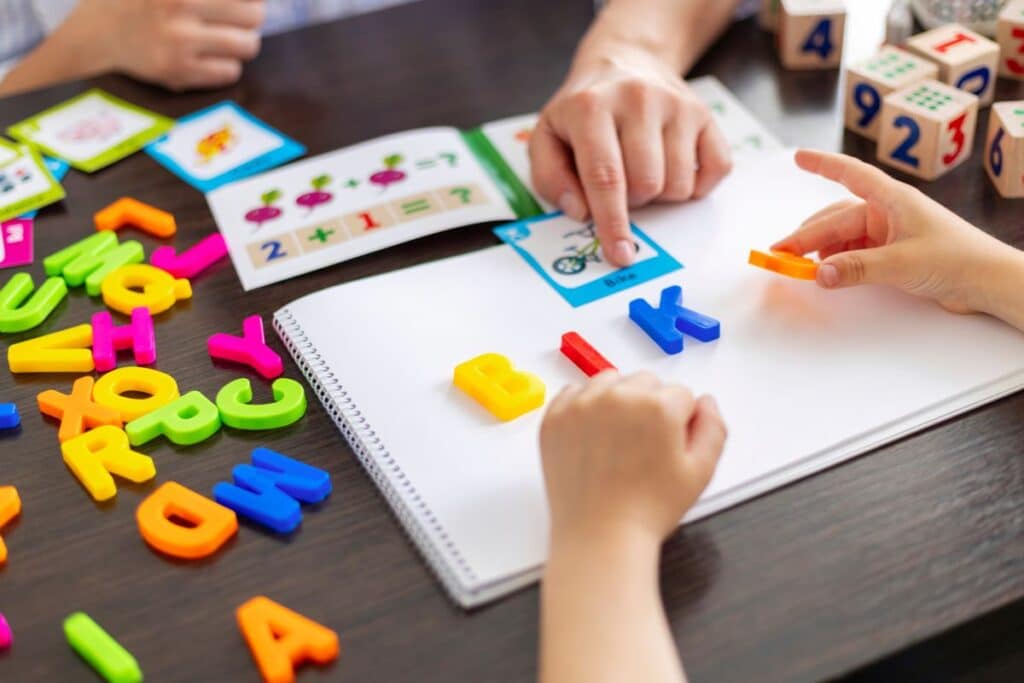Navigating the vast and often perplexing world of English spelling can feel like an insurmountable challenge for many students. Yet, mastering spelling is not merely about rote memorization; it’s a foundational pillar for robust vocabulary development, strong reading comprehension, and clear written communication.
As educators, we understand that engaging students in this crucial learning process is paramount. But how do we transform the sometimes monotonous task of spelling practice into an exciting and effective journey of discovery?
This article delves into a treasure trove of fun spelling games to boost vocabulary, offering practical, teacher-approved strategies designed to captivate K-12 students and dramatically enhance their linguistic prowess. Forget the days of uninspired spelling lists; let’s explore how interactive play can unlock a world of words for our learners.
Beyond the List: Why Gamified Spelling Matters
Think back to your own schooling. Were spelling tests always the highlight of your week? Probably not. For many students, traditional spelling drills can feel disconnected from real-world language use, leading to disengagement and a lack of lasting retention.
However, when we infuse spelling practice with elements of play, competition, and creativity, something remarkable happens.
Consider a third-grade classroom where students are actively constructing words with letter tiles, cheering each other on as they correctly spell “magnificent” or “rhinoceros.”
Or a high school English class where teams race against the clock to unscramble challenging vocabulary terms. In these scenarios, spelling is no longer a solitary, intimidating task but a collaborative, exciting quest.
These kinds of fun spelling games really change the dynamic of a classroom. Gamification in education can foster deeper learning by:
- Increasing Engagement: Games inherently provide novelty, challenge, and immediate feedback, keeping students motivated and invested.
- Promoting Active Learning: Instead of passively receiving information, students are actively manipulating words, making connections, and problem-solving.
- Enhancing Retention: The multi-sensory and interactive nature of games helps solidify neural pathways, leading to better recall and application.
- Building Positive Associations: When learning is fun, students develop a more positive attitude towards the subject matter, reducing anxiety and increasing confidence.
- Fostering Collaboration and Communication: Many spelling games encourage teamwork, peer teaching, and verbalization of strategies.
By embracing gamified spelling, we empower students to become enthusiastic word explorers, transforming spelling from a hurdle into a springboard for vocabulary growth and overall literacy development.
Top Fun Spelling Games to Boost Vocabulary
Let’s dive into some highly effective and adaptable spelling games that can be implemented across various grade levels, with tips for differentiation to meet diverse learner needs. These are truly fun spelling games that students will look forward to.
1. Word Detective: A Contextual Clue Hunt
Concept: Students act as detectives, using contextual clues to correctly spell target vocabulary words. This game emphasizes meaning and application.
How to Play:
- Preparation: Choose 5-10 target vocabulary words. Write sentences or short paragraphs where each word is omitted, providing strong contextual clues.
- Activity:
- Present the sentences to students (on a whiteboard, projector, or individual worksheets).
- Students read the sentence and determine the missing word based on context.
- Once they identify the word, they must correctly spell it.
- Differentiation:
- Lower Grades: Provide a word bank for students to choose from. Use simpler sentences and more common words.
- Upper Grades: Use more complex sentences, abstract vocabulary, and require students to justify their spelling choices by explaining the meaning.
- Challenge: Have students write their own “clue sentences” for classmates to solve.
Vocabulary Boost: Connects spelling directly to meaning and usage, improving comprehension and retention of new words.
2. Spelling Charades: Act It Out!
Concept: A kinesthetic and highly engaging game where students act out words, promoting multi-sensory learning.
How to Play:
- Preparation: Prepare a list of target spelling words (nouns, verbs, adjectives work best).
- Activity:
- Divide the class into teams.
- One student from a team picks a word and silently acts it out.
- Their teammates guess the word.
- Once the word is guessed, the student who acted it out must correctly spell it aloud. Points are awarded for both guessing and correct spelling.
- Differentiation:
- Lower Grades: Use concrete nouns and verbs that are easy to act out. Allow students to draw if acting is too challenging.
- Upper Grades: Incorporate more abstract vocabulary, requiring creative and thoughtful interpretations.
- Challenge: Add a time limit for acting and spelling.
Vocabulary Boost: Reinforces word meaning through physical representation, making abstract concepts more tangible and memorable.
3. Word Building Blocks (or Letter Tiles): Hands-On Construction
Concept: Students physically manipulate letter tiles or blocks to build words, reinforcing letter recognition and sequence. This is one of the most classic and fun spelling games.
How to Play:
- Preparation: Provide sets of alphabet letter tiles (Scrabble tiles, Bananagrams, or DIY laminated letters).
- Activity:
- Call out a target spelling word.
- Students race to arrange their letter tiles to form the word.
- Variations:
- “Mystery Word”: Give clues (e.g., “It’s a four-letter word that means a small, furry animal. It starts with ‘m.'”) and students build the word.
- “Word Family Build”: Start with a root word (e.g., “play”) and have students build words from the same family (e.g., “playing,” “played,” “player”).
- Differentiation:
- Lower Grades: Focus on CVC words, sight words, and simple word families. Provide a visual model of the word if needed.
- Upper Grades: Introduce prefixes, suffixes, and root words. Challenge students to build as many words as possible from a given set of letters within a time limit.
Vocabulary Boost: Develops phonemic awareness, reinforces letter-sound correspondence, and builds an understanding of morphemes (prefixes, suffixes, roots) which are crucial for advanced vocabulary acquisition.
4. Spelling BINGO: A Classic with a Twist
Concept: A familiar game format adapted for spelling practice, providing a fun way to review and reinforce target words. This is a great classroom spelling game.
How to Play:
- Preparation: Create BINGO cards with a grid (e.g., 3×3 or 4×4). Fill each square with a target spelling word. Ensure each card has a unique arrangement of words.
- Activity:
- Call out words. Instead of just calling the word, provide a definition, a sentence, or a synonym, requiring students to identify the correct word.
- Students locate the word on their card and cover it.
- The first student to get a BINGO (a line of covered words horizontally, vertically, or diagonally) wins. They must then correctly spell the winning words aloud.
- Differentiation:
- Lower Grades: Use pictures on the BINGO cards for emergent readers. Call out words directly.
- Upper Grades: Use more challenging vocabulary. Provide only definitions or fill-in-the-blank sentences as clues.
- Challenge: Have students create their own BINGO cards using a list of words.
Vocabulary Boost: Reinforces both the spelling and meaning of words through active recognition and association.
5. Dictionary Dash (or Thesaurus Trek): Navigating the Lexicon
Concept: This game encourages students to use reference materials to understand, spell, and discover new words.
How to Play:
- Preparation: Have dictionaries (physical or online) readily available for each student or pair.
- Activity:
- “Definition Race”: Call out a word. Students race to find the word in the dictionary and write down its definition. The first to do so correctly wins.
- “Spelling Scavenger Hunt”: Give students clues (e.g., “Find a word that means ‘courageous’ and starts with ‘b.'”). They must find the word and correctly spell it.
- “Thesaurus Challenge”: Provide a common word. Students use a thesaurus to find as many synonyms as possible and correctly spell them.
- Differentiation:
- Lower Grades: Focus on simple words, alphabetical order, and identifying the first letter. Use picture dictionaries.
- Upper Grades: Challenge students to identify homophones, homographs, or delve into etymology. Require them to use new words in a sentence.
Vocabulary Boost: Directly teaches dictionary and thesaurus skills, expanding vocabulary by discovering synonyms, antonyms, and precise meanings. Encourages independent word exploration.
6. Spelling Relay Race: Collaborative Competition
Concept: A team-based game that encourages quick thinking, collaboration, and accurate spelling under pressure.
How to Play:
- Preparation: Divide the class into 2-4 teams. Have a whiteboard or large paper for each team.
- Activity:
- Teams line up. The teacher calls out a word.
- The first student from each team races to their whiteboard and writes the first letter of the word. They then pass the marker to the next teammate.
- The next teammate writes the second letter, and so on, until the entire word is spelled.
- The first team to correctly spell the word wins a point.
- Differentiation:
- Lower Grades: Use shorter words. Allow students to consult a word list if needed.
- Upper Grades: Use longer, more complex words. Add a rule where if a letter is incorrect, the team must restart that word.
- Challenge: Introduce a “challenge word” that offers double points.
Vocabulary Boost: Reinforces letter sequencing and encourages peer checking within teams, promoting accurate recall of spelling patterns.
7. Word Wall Games: Dynamic Review
Concept: Transform your classroom word wall into an interactive learning tool for daily vocabulary and spelling review. These are excellent spelling games for the classroom.
How to Play:
- Preparation: Ensure your word wall is prominently displayed and regularly updated with new vocabulary and high-frequency words.
- Activity:
- “Word Wall Scramble”: Call out a word from the wall. Students race to be the first to point to it.
- “Guess the Word”: Give clues (definition, synonym, category) about a word on the wall, and students guess the word.
- “Sentence Starters”: Provide a sentence starter, and students must choose a word from the wall to complete the sentence, then spell it aloud.
- “Category Sort”: Have students categorize words from the wall based on commonalities (e.g., nouns, verbs, words with long ‘a’ sound, words related to science).
- Differentiation:
- Lower Grades: Focus on visual recognition and phonetic patterns.
- Upper Grades: Emphasize morphological analysis (prefixes, suffixes, roots) and semantic relationships.
Vocabulary Boost: Provides constant exposure to target vocabulary, reinforcing spelling and meaning through varied interactive activities.
Implementing Gamified Spelling in Your Classroom
Integrating these fun spelling games doesn’t require a complete overhaul of your curriculum. Here are some practical tips for success:
- Start Small: Choose one or two games to introduce. Master them before adding more.
- Clear Expectations: Explain the rules thoroughly before starting. Model the game if necessary.
- Manage Behavior: Establish clear guidelines for teamwork, sportsmanship, and noise levels.
- Rotate Games: Keep the learning fresh by varying the games you play.
- Connect to Curriculum: Integrate spelling words from your current reading, writing, or content area studies.
- Provide Feedback: Offer constructive feedback on spelling accuracy and participation. Celebrate effort and improvement.
- Differentiation is Key: Adapt games to meet the needs of all learners, from those needing extra support to those ready for advanced challenges.
- Leverage Technology: Many online tools and apps offer interactive spelling games that can complement your in-class activities.
The Lasting Impact: Beyond the Test
When we make spelling an enjoyable and interactive experience, we do more than just improve test scores. We cultivate a love for language, equip students with essential literacy tools, and build their confidence as readers, writers, and communicators.
These fun spelling games to boost vocabulary are not just frivolous diversions; they are strategic pedagogical approaches that yield profound and lasting results.
Let’s empower our students to become confident, capable spellers and articulate communicators. By embracing the power of play, we can transform the spelling journey into an adventure where every word learned is a victory celebrated.
Educators never stop learning; check out our available graduate degree programs to hone your skills and promote lifelong learning and academic excellence.




